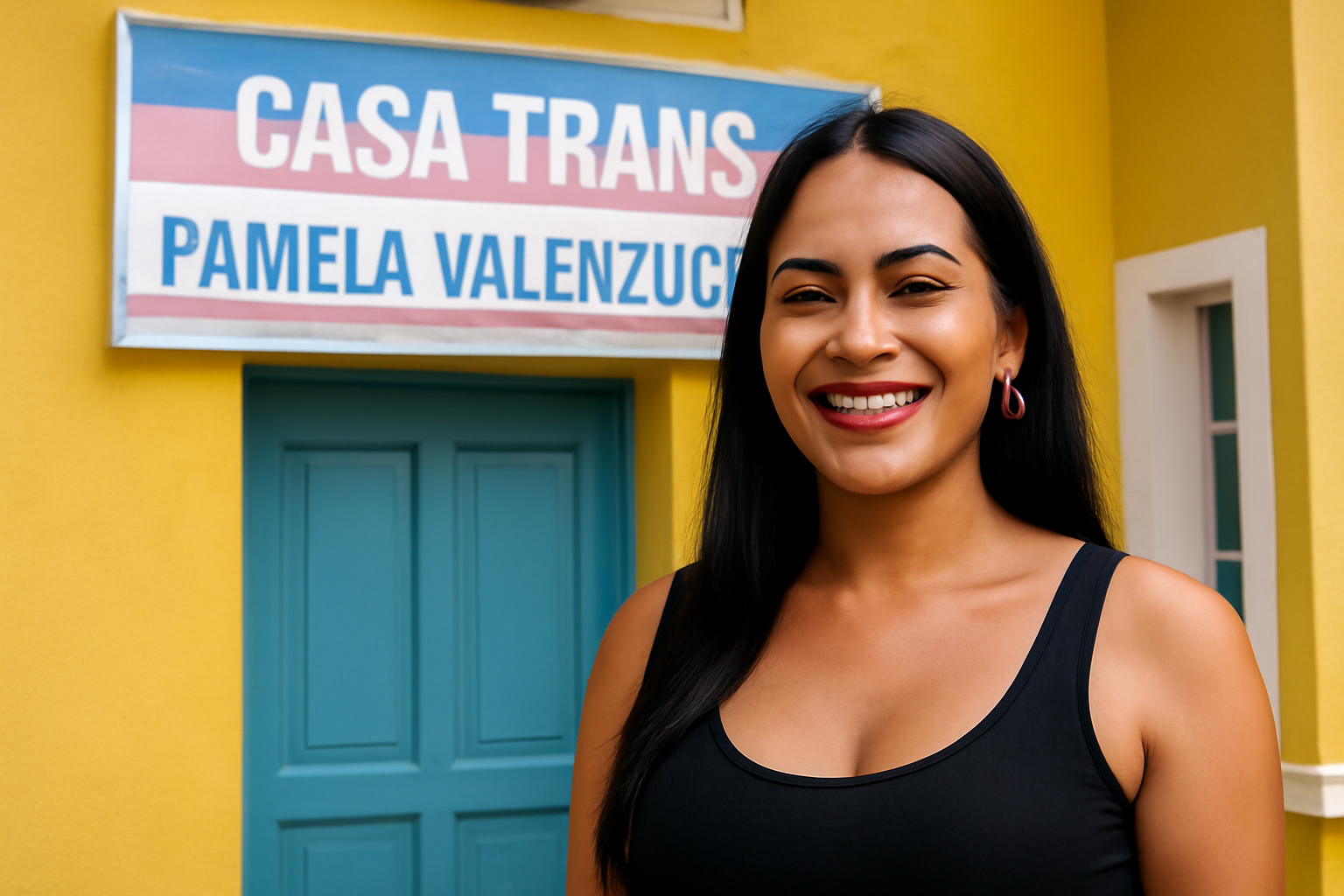
In Bolivia, where discrimination and exclusion remain significant barriers for the LGBTQ community, Casa Trans Pamela Valenzuela shines as a vital refuge and support center for transgender individuals. Since its inception in 2022, Casa Trans has been more than just a shelter; it has been a beacon of hope, providing essential services including legal, medical, psychological, and nutritional support.
Comprehensive Support for Transgender Individuals
Located in La Paz's San Pedro neighborhood, Casa Trans operates daily, offering a welcoming environment with a soup kitchen that allows visitors to prepare their meals. While anyone in need can receive a meal, Casa Trans primarily focuses its efforts on supporting transgender men and women.
The driving force behind Casa Trans is Luna Humérez, president of the Organización de Travestis, Transgéneros y Transexuales Femeninas (Otraf) in Bolivia. Humérez explained that the project was launched in response to the increased needs that emerged during the COVID-19 pandemic, when many trans individuals lost their livelihoods and homes due to the collapse of informal work and sex work.
"What inspired the creation of the Casa Trans was post-COVID," Humérez shared. "During the pandemic, many in the trans community, especially the Latino trans community, struggled with housing and food insecurity, as they were unable to work due to lockdowns and the nature of their employment."
Thanks to support from the Global Fund, Humérez and fellow activists established a space offering free meals and shelter from Monday through Friday. The services provided by Casa Trans have continuously expanded over time. "We have broadened the spaces available and developed a multidisciplinary care team," Humérez noted, listing professionals such as social workers, psychologists, endocrinologists, general practitioners, legal advisors, and lawyers who offer their support on-site.
The space at Casa Trans has evolved significantly, now accommodating and assisting more individuals than ever before, including not only LGBTQ individuals but also those in other vulnerable situations. Despite some progress in legal and social arenas, LGBTQ people in Bolivia still face substantial hurdles in accessing adequate healthcare, education, employment, and housing.
Addressing Discrimination and Health Care Gaps
A recent survey involving Bolivia's LGBTQ community revealed that over 60 percent of participants had experienced some form of discrimination, ranging from verbal and physical abuse to exclusion within workplaces and educational institutions. A worrying 33 percent reported having no access to health care, with sexual minorities and transgender women being the most affected. Additionally, a staggering 65 percent of respondents stated they were unaware of how to access Bolivia's Unified Health System.
While Bolivia's legislation regarding LGBTQ rights has seen some improvements, significant gaps remain. "Although we have achieved some progress with laws like the Gender Identity Law and the Anti-discrimination Law, they are insufficient," Humérez explained. "The trans population in Bolivia still lacks the same rights as their cisgender counterparts, which makes our continued fight for full recognition and equal rights crucial."
Humérez also emphasized the importance of political engagement, urging LGBTQ activists to participate actively in the upcoming elections. "It is vital for us to be political actors in these elections," she stated.
Challenges and Future Prospects
Despite the indispensable work it does, Casa Trans faces ongoing challenges, particularly in securing funding. Humérez highlighted the difficulty in obtaining direct financial support, mentioning that the dedicated individuals working at Casa Trans do so on a volunteer basis. "The challenges are complicated due to our lack of direct funding," she said.
International developments also play a role in the financial uncertainties faced by Casa Trans. Humérez expressed concerns about the impact of policy changes from abroad, such as those from the United States. "Changes in foreign policy, like those initiated by previous U.S. administrations, can complicate our efforts to secure enough funding," Humérez explained. "It is imperative that we receive financial support to continue our important work, as it directly impacts the lives and well-being of our community."
The existence and operations of Casa Trans Pamela Valenzuela exemplify the pressing need to address inequalities and combat discrimination faced by Bolivia's LGBTQ community. As an essential resource, Casa Trans not only provides immediate aid but also paves the way for a more inclusive and equitable future for transgender and LGBTQ individuals in Bolivia.
Related Posts
Trump Inaugurated as 47th President Amid Concerns for LGBTQ+ Community
Donald Trump has been sworn in as President once again, marking his second term as America's 47th leader. This significant event in U.S. politics promises profound impacts, especially concerning LGBTQ+ rights. Taking office: promises and challenges Amidst a harsh winter storm, Trump took his oath indoors at U.S. Capitol on January 20. Alongside him, Vice-President JD Vance also stepped up, both [...]
Daniel Craig's "Queer" Overlooked by BAFTA: A Surprising Omission
Daniel Craig's film, Queer, snubbed by BAFTAs despite rave reviews In a surprising twist, Daniel Craig's newest film, *Queer*, failed completely on BAFTA's nomination list this year. It's a head-scratcher, considering how critics have sung its praises and Craig delivered such a standout performance. Yet, not a single nod from BAFTA. Go figure. fans and critics baffled by BAFTA snub The exclusio [...]
Generations of LGBTQ+ Athletes: From Past Challenges to Modern Triumphs
In a captivating display that brought together voices across generations, two gay athletes from different times came together on a TV show, sharing their journeys and thoughts on LGBTQ+ representation in sports. This insightful program shed light on how inclusivity and acceptance in athletics have evolved over time. Connecting past and present: The stories behind Andrew Purchas and Davis Atkin L [...]